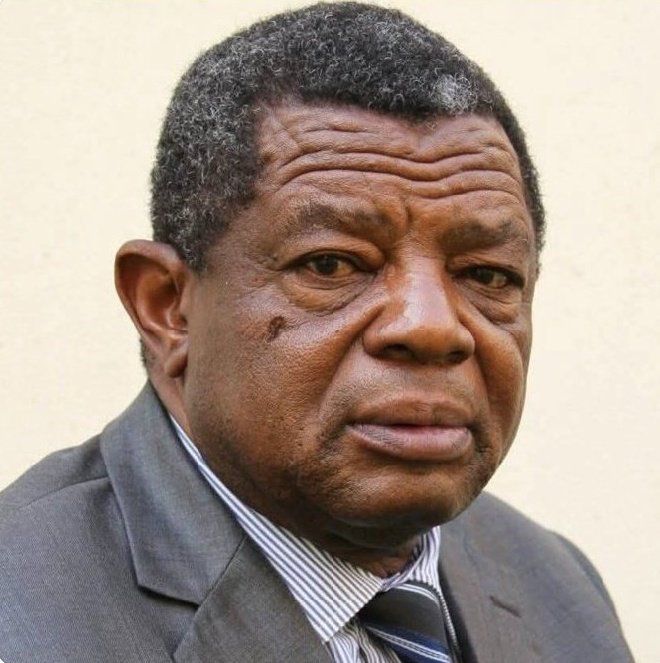BY IRVIN TAKAVADA
While it is certainly understandable that every leader has their ills, igniting a revolution may cause anarchy thereby urging the great need to deal with every issue amicably and in peace.
Revolution Defined
According to the Oxford Language Dictionary, a revolution is as a forcible overthrowal of a government or social order in favor of a new system.
Geza Revolution: A Path to Anarchy
Given the legal framework of Zimbabwe, the so-called Geza Revolution constitutes an act of anarchy. The call by Blessed Bombshell Geza to remove a government is an act of treason, as defined in Section 20 of the Criminal Law (Codification and Reform) Act [Chapter 9:23].
This law outlines the actions constituting treason and the potential penalties associated with such acts.
According to the 2013 Constitution of Zimbabwe (Amendment No. 20) Act, which was gazetted into law on May 22, 2013, presidential term limits must be respected. If these limits were violated, only then could a revolution be justified. However, in the absence of constitutional violations, seeking redress through legal and peaceful means remains the appropriate course of action.
Addressing pressing issues peacefully
whether there are pressing socio-economic issues or dissatisfaction within the military and security sector, there are better platforms and trained mediators to communicate grievances with the government. These mechanisms ensure issues are addressed without resorting to violence.
Mistakes from Both Sides
The Government’s Shortcomings:
The ZANU-PF-led government has made the mistake of overly relying on security forces instead of prioritizing peaceful engagement. A more prudent approach would be to call for peace talks and initiate dialogue with key stakeholders. The sidelining of the Political Actors Dialogue (POLAD) and failure to implement the Kgalema Motlanthe Commission of Inquiry recommendations have further complicated the situation.
A big brother mentality in governance often leads to a “we know it all” approach, which has historically resulted in disastrous consequences.
Geza’s Miscalculation
The Geza unit has failed to uphold constitutional principles. If they seek legitimacy, they must consider how they would be accepted in regional and continental governance bodies such as SADC and the African Union, which strongly oppose unconstitutional changes of government.
The Need for Mediation
The best solution is to bring both parties to the negotiating table with immunity. This is where the Council of Churches, the Catholic Bishops’ Conference, and other neutral stakeholders should take the lead in calling all actors to order through dialogue. However, their silence on the matter is concerning.
President Emmerson Mnangagwa’s advisors must guide him towards prioritizing peace. While some believe that war is necessary for peace, history shows that the greatest leaders are those who avoid war at all costs. Instead of undermining adversaries with state resources, inviting respected figures such as former South African President Thabo Mbeki, Kgalema Motlanthe, and former Kenyan President Uhuru Kenyatta to mediate could help resolve the crisis.
The Dangers of a Government Born Through Violence
While many stakeholders may be frustrated with ZANU-PF’s rule, supporting or ignoring a violent takeover is dangerous. A government that comes to power through the barrel of a gun is likely to maintain its grip on power through continued violence, leading to a militia state and an increase in human rights violations.
The Threat of Civil War and Rebellion
If Geza and his supporters fail to take power or are captured, they could resort to guerrilla warfare. Rebel movements have wreaked havoc in other African nations:
- Central African Republic is plagued by armed groups.
- Nigeria continues to struggle with Boko Haram.
- Mozambique’s Cabo Delgado province remains unstable due to insurgents.
- DRC has battled M23 rebels for decades.
- Niger and Uganda have suffered from lawlessness due to militia groups.
Do we want Zimbabwe to follow this path? The answer is No. What seems like a quick fix today could lead to decades of regret and socioeconomic collapse.
Potential Solutions
- A National Referendum
To de-escalate tensions, President Mnangagwa’s government could call for a referendum to decide on forming a Government of National Unity (GNU). If Geza truly has widespread support and legitimate grievances, seeking impeachment through Parliament would have been a lawful approach. - Dialogue as the Ultimate Solution
In the end, dialogue remains the only viable solution for both parties and for the nation’s stability. Even after conflicts, peace talks are inevitable—so why not choose dialogue now and prevent unnecessary bloodshed?
Conclusion
For Zimbabwe to avoid the traps of war, anarchy, and instability, both the government and opposition forces must embrace dialogue and mediation. Seeking external neutral mediators, respecting the rule of law, and prioritizing national interest over personal ambitions will ensure that Zimbabwe emerges stronger, united, and peaceful.
Irvin Takavada is a political commentator and writes in his personal capacity and can be contacted on +263 77 111 9337.

